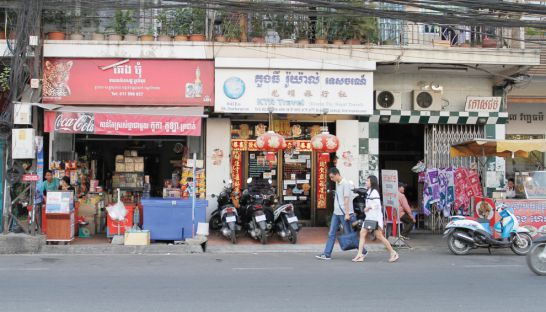Cambodia: SMEs look for help against imports
Local small- and medium-size enterprises (SMEs) met with government officials yesterday and accused them of not doing enough to support domestic products against a flood of imports while multiple officials claimed that they could provide little assistance unless businesses were properly registered.
The second annual private-public sector workshop was designed to discuss the challenges SMEs face in securing adequate lines of credit, meeting technical export requirements, reducing certificates of origin fees and other trade barriers.
Te Taing Por, president of the Federation of Association for Small- and Medium-Sized Enterprises of Cambodia, claimed that while local companies continued to grow this year, unfair competition and cheaper imports from neighbouring countries stifled growth potential. He said, as a result, local products are unlikely to be found in the Kingdom’s shopping malls, hotels and restaurants.
“Because these businesses are biased towards foreign products, it is hard for SMEs to expand in the local market,” he said. “There are also technical barriers which stand between SMEs reaching their exporting goals, so I request that the relevant ministries take action.”
Taing Por called for the creation of an interministerial group that could facilitate direct communications between Cambodian producers and buyers within foreign markets like the US, Japan and China.
Hak Sovanna, president of the Alliances of Cambodian Agricultural Products Exporters, explained that the government lacked clarity on sanitary and phytosanitary requirements and the need to obtain a certification of origin (CO).
“Some SMEs have no idea how to apply for SPS and CO registration,” he said, adding that a more transparent process would help breakdown export barriers.
Minister of Industry and Handicrafts Cham Prasidh said that the government could not give Cambodian products preferential treatment over foreign imports due to free market dynamics.
“Our private sector has to build up its capacity, its quality, and its standards of food safety to fairly meet the competition in the market,” he said.
The ministry has created 804 national product standards for local products thus far, and producers are expected to register and maintain the quality of their products in accordance with these standards, he added.
“Local producers always complain of the difficulties when it comes to getting their products into the market,” he said. “But often big and small companies alike do not meet our standards or don’t even register their products with the ministry at all.”
Commerce Minister Pan Sorasak said the private sector needs to understand the responsibilities of registering its products to verify its goods are truly Cambodian-made and in compliance with the law.
“We can only solve the problems if companies and products are registered in our network,” he said.
Sin Pisey, general sales manager for Aeon Mall, claimed that the retail giant already stocked its shelves with over 1,000 local products that are exempt from the regular markup fees charged on imports. He added that while the mall was trying to expand the amount of local products it carries, they still needed to meet government standards.
“We cannot accept local products that are not in compliance with the national or international standards,” he said. “Even though many companies can produce products that meet these standards, they are hindered by poor management.”
Hean Vanhan, Deputy Director General at General Directorate of Agriculture, said that all relevant ministries should work together to solve the issues instead of boasting about their fragmented initiatives.
“The solutions the ministries have recommended are not comprehensive. Efficiency is still limited,” he said. “The ministries need to be united in trying to solve the problems.”
Source: http://www.phnompenhpost.com/business/smes-look-help-against-imports


 English
English




